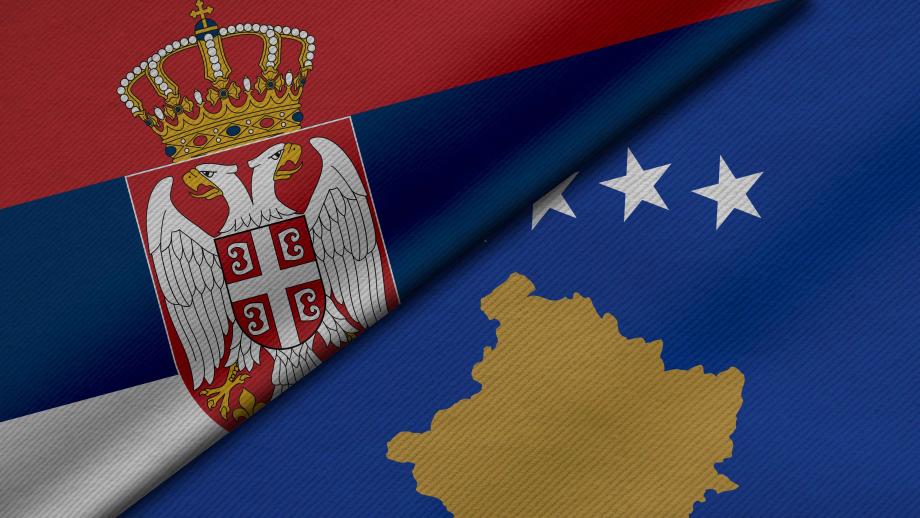Serbia-Kosovo: Can the Unfolding Crisis be a Dangerous Destabiliser for the Region, Europe, and Beyond?

Recent escalations caused by historical ethnic tensions and division in Northern Kosovo are becoming a rising cause of concern for the EU as risks of a renewed conflict become gradually more concrete.
Happening against the backdrop of an almost year-long war in Ukraine - which drew even deeper separation lines between the West and Russia - a conflict in the Western Balkans could have explosive consequences for Europe. As democracy seems to be on the defence in parts of the region, Russia’s undivided support to countries like Serbia could exacerbate the ideological division currently separating the West from Russia even more.
With new conflicts around, the EU is faced with decisions that could fuel polarisation within its institutions and population, threatening not only its stability and democratic values but also much of the progress made through the years in the Western Balkans towards a common EU path.
Recent Escalations in Northern Kosovo
Despite having achieved some form of coexistence between the majority ethnic Albanian and the minority ethnic Serb populations in Kosovo, tensions between the two sides never entirely subsided since the end of the war in 1999 but rather continued to fuel the potential to spark a conflict in the region.
Tensions intensified further this summer when Pristina introduced new rules on identification documents and license plates, envisioning equal compliance by ethnic Serbs. However, because most ethnic Serbs in Kosovo do not recognise Pristina and its institutions as a legitimate authority - and thus travel around Kosovo with Serbian passports and Serbia-issued number plates - the requirements sparked outrage among the minority population in the region.
Following the dismissal of a Serb police officer over his refusal to change number plates in early November many ethnic Serb state employees in government, police and court positions in Northern Kosovo resigned en masse to protest against the newly introduced requirements, further exacerbating the situation created over the summer.
Security concerns were quickly rising, as the deadline for switching to Kosovo-issued number plates expired on 21 November, after which ethnic Serbs refusing to switch would have had to pay a fine to Pristina. Emergency talks which took place in Brussels on the expiry date yielded no success, as Serbian President Aleksandar Vučić and Kosovo Prime Minister Albin Kurti failed to reach a compromise on the matter. Finally, few hours before an extended 48 hours deadline passed, a last round of negotiations facilitated by the EU and US channels yielded a deal, for now.
The Incessant EU Efforts
The EU High Representative for Foreign Affairs, Josep Borrell, referred to the recent escalations as the region’s most dangerous crisis of the last decade.
Efforts made by the EU to manage tensions and foster an agreement between the two sides almost did not come to fruition. Despite the EU’s decades-long efforts in mediating to find a solution to the historic territorial issue of Kosovo, a necessary synergy between the two sides to cooperate has yet to materialise, making the conciliation process much harder.
Earlier this month, information on the new Franco-German proposal to resolve the territorial dispute was leaked, revealing a plan for the normalisation of relations from the perspective of a common EU future, with the exchange of permanent missions in Pristina and Belgrade. The leaked information very much diverges from Serbia’s President Aleksandar Vučić’s statements on the proposal, as he claimed the plan initially involved the conferral of UN membership to Kosovo in exchange for Serbia’s fast-track to EU membership. Whatever the suggested plan is, it becomes clear with time that no version of any plan will concretise without the willingness to compromise from either or both sides.
The willingness of the EU to mediate, however, is unabating. Since starting the Belgrade-Pristina dialogue in 2011, the EU has managed to negotiate the mutual recognition of university diplomas, the exchange of land registries and documents, the end of the trade embargo and certain freedoms of movement, among other successes. Despite the perception that progress is unattainable and that the conflict will always remain frozen, the EU has, in fact, managed to bring the two sides closer than some could have ever imagined by keeping the channel of communication between both sides open with regular meetings and drafting of proposals, as well as by helping ease tensions whenever they arose.
However, it is also becoming more evident that the EU’s bargaining power on the matter might not be as significant as previously envisioned. An increasing sentiment of frustration with the slow and often stalled accession process across the region has resulted in reduced support for the EU. In Serbia, these frustrations are pushing the population to resonate more with Russian anti-EU rhetoric and the political elite to shift away from EU values. In addition, the EU’s shift of focus towards the East and the granting of candidacy status to Ukraine and Moldova have been further ‘read’ as leaving the Western Balkans behind - a dangerous interpretation.
Serbia’s Derail from the EU
Without a resolution to the dispute, Serbia’s accession to the EU remains improbable. Although territorial integrity is not a formal condition for accession, two basic requirements are the consolidation of a stable democracy and the rule of law, which imply stable control over a country’s territory.
With any escalation of tension between Serbia and Kosovo, there is a viable potential to derail the enlargement process to the rest of the Western Balkans. Spill-over effects threaten the general stability of the whole region, as ethnic tensions in other countries, such as in Bosnia and Herzegovina within Republika Srpska, are intensifying. Because of their shared past, stability within one country of the Western Balkans depends heavily on the stability of another, just as much as hopes for accession for one country often correlate to the hopes of another.
The failure to resolve the territorial dispute, however, is not the only reason for Serbia’s slow advancement to the EU.
Over the last few years, the Serbian government has increasingly demonstrated reduced commitment to EU values and resistance to aligning to the bloc’s foreign policy, evidence of which is the September 2022 agreement between Serbia and Russia pledging long-term consultations on foreign policy matters.
Despite being an EU candidate, Serbia’s official and popular stance on the Russian invasion of Ukraine deviates from the EU’s unified one. Not only did Serbia not impose any sanctions on Russia, but it also signed a new gas supply agreement and let Russian media continue to operate in the country.
One of the reasons for Serbia’s lack of denunciation towards the Russian aggression is perhaps the widespread resentment towards NATO that the two countries share, present in Serbia since the 1999 NATO bombings on the country. Another reason might be the hopes that a Russian victory over Ukraine might give determination and momentum for bolder demands.
A renewed conflict in Kosovo would not only be encouraged by Russia - as Russian influence over Serbian politics is allegedly pressuring for an armed incursion in Northern Kosovo - but would also be a reason for celebration for the Russian president. A conflict in the Western Balkans - a region on the doorstep of the EU - means a shift of attention from Ukraine to Serbia and Kosovo, and thus further political polarisation and destabilisation within the bloc regarding support or non-support of certain conflicts.
Time to Act
The past days’ intensity of negotiations shows a sign of urgency and understanding that the Union will do all it can to secure a new calm. With some loss of credibility, however, the EU should be applying all means at its disposal to regain the trust and desirability for the region’s EU path. The Commission’s recommendation to grant candidacy status to Bosnia and Herzegovina in October is, for example, a step in the right direction to bring back support for the EU in the region whilst also motivating politicians to stay on the EU course instead of finding support elsewhere.
While much effort, and rightfully so, has been placed on supporting Ukraine, a meaningful re-assurance of the Western Balkans region is essential right now. This can combine political, economic, and civil society support. The right impulse can give the countries determination to continue to actuate reforms to access the Union as quickly as possible, rather than giving up and giving in to anti-EU sentiments and lingering disputes.
